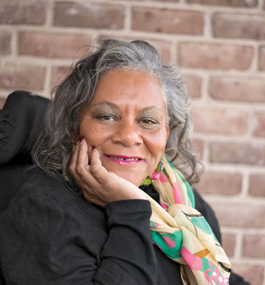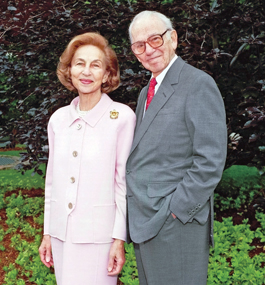
Deidre Davis Butler
Deidre “Dee” Davis Butler ’77: A Tireless Advocate for the Disabled
Deidre “Dee” Davis Butler ’77, an attorney who for four decades advocated in behalf of disability rights, died Aug. 7 in Rogers, Arkansas, at age 64.
A spinal cord tumor caused Butler to become paralyzed as a child. According to The New York Times, extensive rehabilitation allowed her to walk for the rest of her childhood and throughout her undergraduate years. But when she was a second-year law student at Howard University, several of her vertebrae collapsed, and she was confined to a wheelchair for the remainder of her life.
After graduating from Howard, Butler worked to end the divide between disability rights and human rights, and give minorities access to important disability programs.
“Dee was a real fighter,” says attorney Lynn Whitfield ’77. “She was not going to let anything or anybody stop her from achieving her goals.”
“Simply put, Dee was a force,” adds Karen Stroud ’79. “This was never more evident than when she visited me one summer before she started her legal studies at Howard. In D.C., we lived in a third-floor walk-up. I’ll never ever forget her grit and determination in climbing those three flights.”
Butler played a critical role in helping to draft the landmark 1990 Americans With Disabilities Act. In a 2010 interview with NPR, she explained, “I was [one of] only the very few people of color in the inner layers of helping to draft the ADA, implement it [and] enforce it from all different perspectives.”
During the Clinton administration, Butler served as a deputy assistant secretary at the U.S. State Department, representing the Equal Employment Opportunity Commission. She visited American embassies around the world to make sure they were following civil rights and disability rights guidelines.
“She made a difference for many people,” says Margaret Hanson-Muse ’78, a U.S. foreign service officer. “When I had to build two offices for the commercial service during my second tour in India in 2011-14, I thought of Dee Dee. Why? Because we made sure they were ADA-compliant.”
Today, Hanson-Muse says she is grateful to her friend “for adjusting the height and depth of our view, so that others may participate.”
In 2005, Butler moved to Arkansas to work as Walmart’s first director of ADA services, helping to ensure the company’s retail, transportation and distribution facilities complied with disability-rights laws. After retiring from Walmart in 2012, she founded DYSability Dynamics, a disability diversity consulting company.
She served on the boards of directors of the National Council on Independent Living, the Howard University Center on Minorities With Disabilities and the National Black Disability Coalition. Last July, she received the National Council on Independent Living’s Lifetime Achievement Award.
She leaves her husband, Juan; two brothers; and many extended family members and friends.
— Mark Sullivan

Carl Shapiro with his wife, Ruth
Carl J. Shapiro, H’03: A Stalwart Friend to the University
At 108, Carl J. Shapiro, H’03, who passed away March 7, was Brandeis’ most generous benefactor, a giant in the history of the university he had supported since its earliest days.
Shapiro and his late wife, Ruth, made their first gift to Brandeis — $10 — in 1950, just two years after the university’s founding. They, along with their family, went on to become the university’s largest donors, giving more than $72 million over the years.
Today, one cannot walk the Brandeis campus without encountering the Shapiro name — most prominently, on the Carl and Ruth Shapiro Campus Center, the Carl and Ruth Shapiro Admissions Center and the Carl J. Shapiro Science Center.
“Carl Shapiro’s immense generosity has shaped this university in innumerable ways,” says President Ronald Liebowitz. “We have been honored to count him and his entire family among our closest friends. This institution would not have achieved or been able to maintain its reputation for academic excellence without the Shapiro family’s dedication.
“The Shapiro Science Center is the heart of scientific research on campus, just as the Shapiro Campus Center is at the center of student life,” Liebowitz continues. “The Shapiro Admissions Center is the gateway for the next generation of Brandeis students. We remain grateful for and inspired by the Shapiros’ mark on the university.”
Shapiro founded Kay Windsor Inc. in New Bedford, Massachusetts, building it into one of the largest women’s apparel companies in the U.S. He and Ruth (Gordon) Shapiro had been married 73 years when she passed away in 2012.
“The university’s mission and founding values resonated so convincingly with Mr. Shapiro that he was compelled to champion the institution for decades,” says Zamira Korff, senior vice president of institutional advancement. “He selflessly answered the call to strengthen the university at its most critical times, demonstrating prescience, passion and extraordinary generosity. His counsel was invaluable to Brandeis presidents. His service to and love for this institution was unparalleled, and his legacy will endure for generations.”
Shapiro served on the Brandeis Board of Trustees from 1979-88. “Carl Shapiro’s years of service with the Board of Trustees shaped the university as it is today,” says board chair Meyer G. Koplow ’72, P’02, P’05.
At Brandeis, the Carl and Ruth Shapiro Family Foundation also established the Carl Shapiro Chair in International Finance, the Carl and Ruth Shapiro Center for Library Technology and Journals, and the Zinner Forum at the Heller School for Social Policy and Management.
The Shapiros’ three daughters — Ellen Jaffe, Linda Waintrup and the late Rhonda Zinner — continued a tradition of service to Brandeis. Zinner, who passed away in 2014, succeeded her father as a Brandeis trustee and served as vice chair of the Heller School’s board of overseers. The Rhonda S. and Michael J. Zinner Forum at the Heller School, endowed by Shapiro, serves as a centerpiece of the Heller community. Linda Waintrup served on the board of advisers of the Rose Art Museum at Brandeis.
To honor Shapiro’s legacy, Brandeis has established the Carl J. Shapiro Memorial Fund (giving.brandeis.edu/carlshapiro).
— Mark Sullivan
